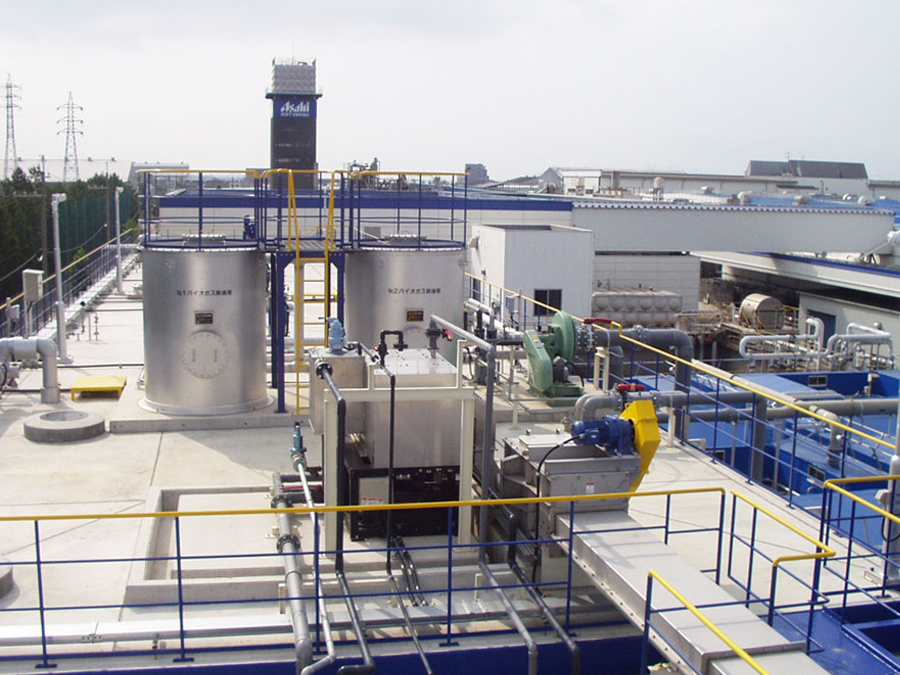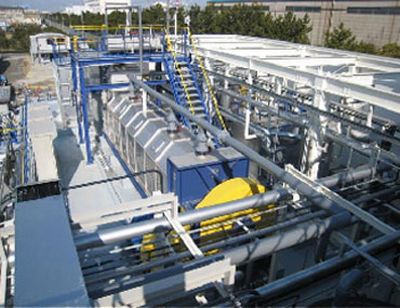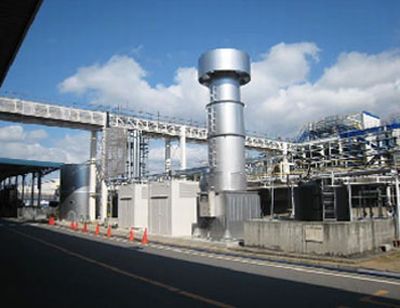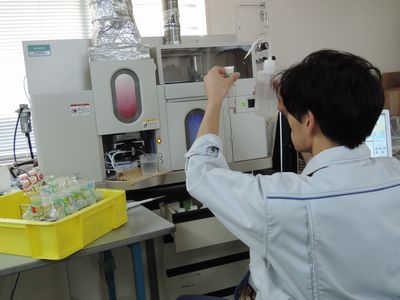Asahi Beverage Co., Ltd. Akashi Plant

Highly efficient methane fermentation facility reduces waste volume by 82%
The Asahi Beverages Akashi Plant, which has the largest production capacity in Japan, is a big hit with WONDA and Jurokucha, and has resulted in significant volume of coffee grounds and used tea leaf. They are considering introduction of a state-of-the-art volume reduction facilities that are environmentally friendly with minimum use of fossil fuels to reduce the amount of waste and treatment costs.
We proposed introduction of methane fermentation equipment that can recovers energy by using coffee grounds, used tea leaf and wastewater treatment sludge while reducing the volume of waste.
Prior processing of raw materials with different properties is important
Coffee grounds has traditionally been considered unsuitable for energy recovery through methane fermentation.
In this facility, our unique pretreatment has enabled high-efficiency methane fermentation.
As a result, approximately 200 m3 of biogas can be recovered from 1 ton of coffee grounds, which is used as a heat source for electricity and steam to achieve energy savings.
This technology is applicable not only to coffee grounds, but also to used tea leaf and wastewater treatment sludge, making it possible to achieve optimal methane fermentation at the Akashi Plant, where a wide range of products are manufactured.

Reducing fossil fuels by using steam generated from methane gas as a heat source for plants
The introduction of high-efficiency methane fermentation equipment is very effective. In addition to achieving a volume reduction of 82% of sludge, it also produces more than 16,000 tons of steam annually, which is used as a heat source at the plant, thereby contributing to the reduction of fossil fuels and the reduction of CO2.
In recognition of these efforts, Asahi Beverage was awarded the Highest Prize for its environmental friendliness in Hyogo Prefecture in 2010.

Adequate after-sales support
In order to ensure stable operation of facilities, we have formulated a medium-to long-term maintenance plan while checking the operation status with the Akashi factory, and are working to standardize the operation and maintenance budget. We are also taking preventive measures to avoid equipment shutdowns due to failure.
We also regularly analyze fermentation conditions and support operation management.
